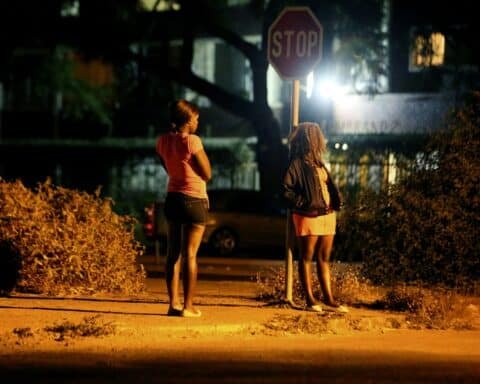Facebook is asking users to send the company naked photos and videos of themselves so that it can block the images if they are later uploaded as revenge porn.
A trial of the feature in Australia asks people worried that their intimate pictures might be posted by an ex partner to provide the images to Facebook, so that it knows to prevent them being uploaded in future. The trial is due to spread to the UK, US and Canada.
Facebook’s software would create a “hash” – a digital fingerprint of the photo – so it can be recognised the next time it is uploaded and automatically blocked. It hopes that pre-emptive action will prove better than deleting images only after they are reported, by which time the damage may have been done.
Facebook bans explicit images, and revenge porn can result in a prison sentence of up to two years in the UK, but it is still a major problem on the social network. Leaked documents this year revealed that the company sees 54,000 cases a month.
Julie Inman Grant, Australia’s e-Safety commissioner, said Facebook would not be permanently storing the images, but only the hashes, which are capable of blocking further attempts to upload the pictures but can not be decoded to produce the images.
The same hashing technology has been used for years to prevent the spread of child porn, and is also used by internet companies to share and block terrorist images.
Facebook started blocking repeated instances of revenge porn earlier this year, using the hashing technique to identify explicit images that had already been reported and prevent from being re-shared. But this trial takes it one step further by attempting to thwart the photos being posted in the first place.
During the trial, those worried about their images being posted as revenge porn have to contact Australia’s e-Safety commissioner through an online form, which may then suggest providing them to Facebook. Users then send the posts to themselves over Facebook’s Messenger app.
Facebook’s customer support team will then review a blurred version of the image to ensure that it is explicit, and then “hash” it before it is deleted. Further instances of the images will then be blocked.
The company retains the blurred image for some time to ensure the technology is working correctly, and it is then deleted. However, there may be fears that the images could be intercepted in transit, or could be accessed before they are deleted.
Hashing technology has often been fooled by users simply resizing or cropping images, but Alex Stamos, Facebook’s chief security officer, said it was improving to be resilient to such changes.
“This is an initial pilot in Australia. We look forward to getting feedback and learning,” a Facebook spokesman said.








